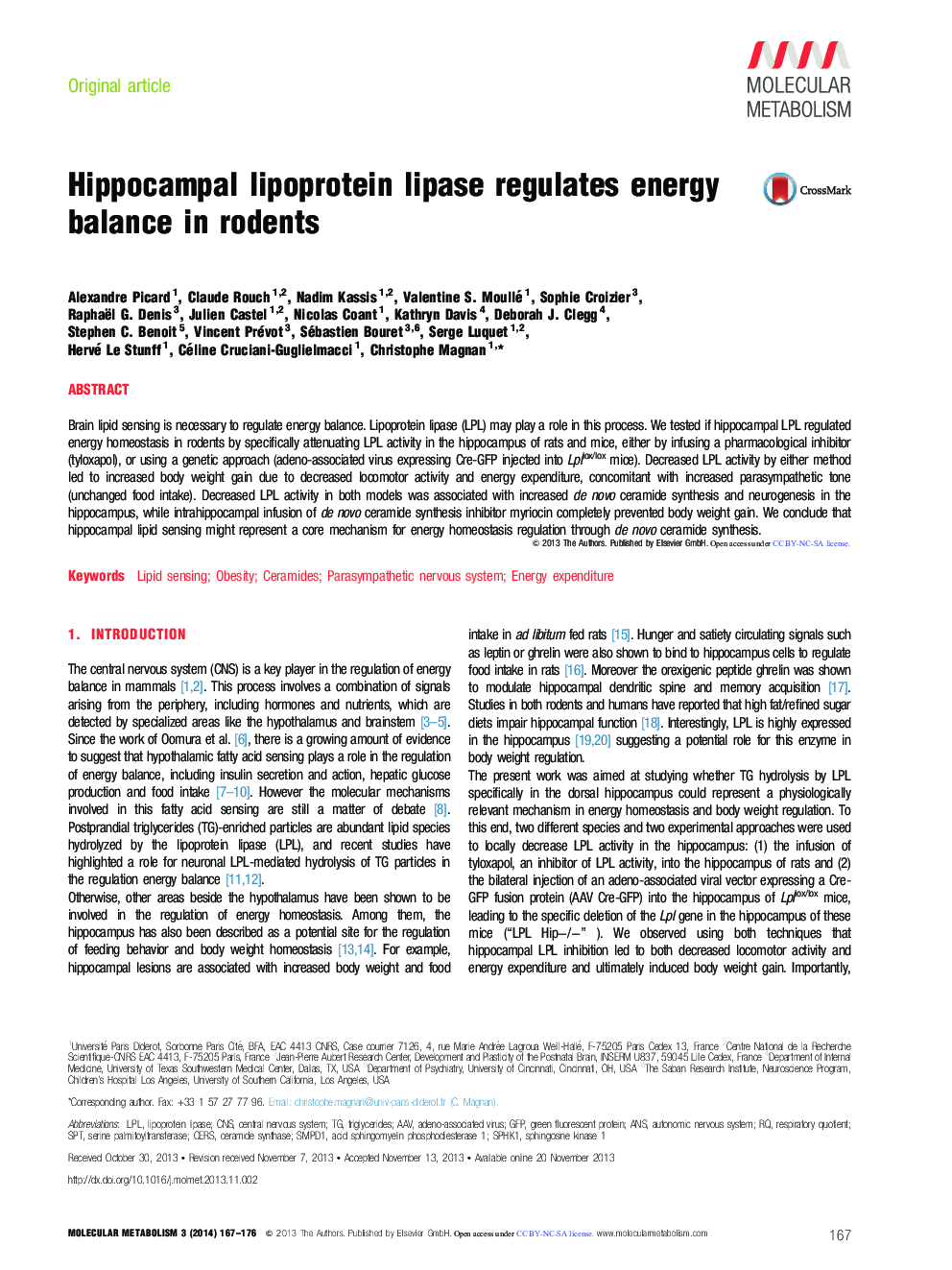| Article ID | Journal | Published Year | Pages | File Type |
|---|---|---|---|---|
| 3001452 | Molecular Metabolism | 2014 | 10 Pages |
Brain lipid sensing is necessary to regulate energy balance. Lipoprotein lipase (LPL) may play a role in this process. We tested if hippocampal LPL regulated energy homeostasis in rodents by specifically attenuating LPL activity in the hippocampus of rats and mice, either by infusing a pharmacological inhibitor (tyloxapol), or using a genetic approach (adeno-associated virus expressing Cre-GFP injected into Lpllox/lox mice). Decreased LPL activity by either method led to increased body weight gain due to decreased locomotor activity and energy expenditure, concomitant with increased parasympathetic tone (unchanged food intake). Decreased LPL activity in both models was associated with increased de novo ceramide synthesis and neurogenesis in the hippocampus, while intrahippocampal infusion of de novo ceramide synthesis inhibitor myriocin completely prevented body weight gain. We conclude that hippocampal lipid sensing might represent a core mechanism for energy homeostasis regulation through de novo ceramide synthesis.
Graphical abstractHippocampal LPL contributes to body weight regulation by controlling locomotor activity and energy expenditure. Such LPL activity involves local de novo ceramide synthesis and parasympathetic nervous system output. LPL: lipoprotein lipase, PNS: parasympathetic nervous system.Figure optionsDownload full-size imageDownload as PowerPoint slide
